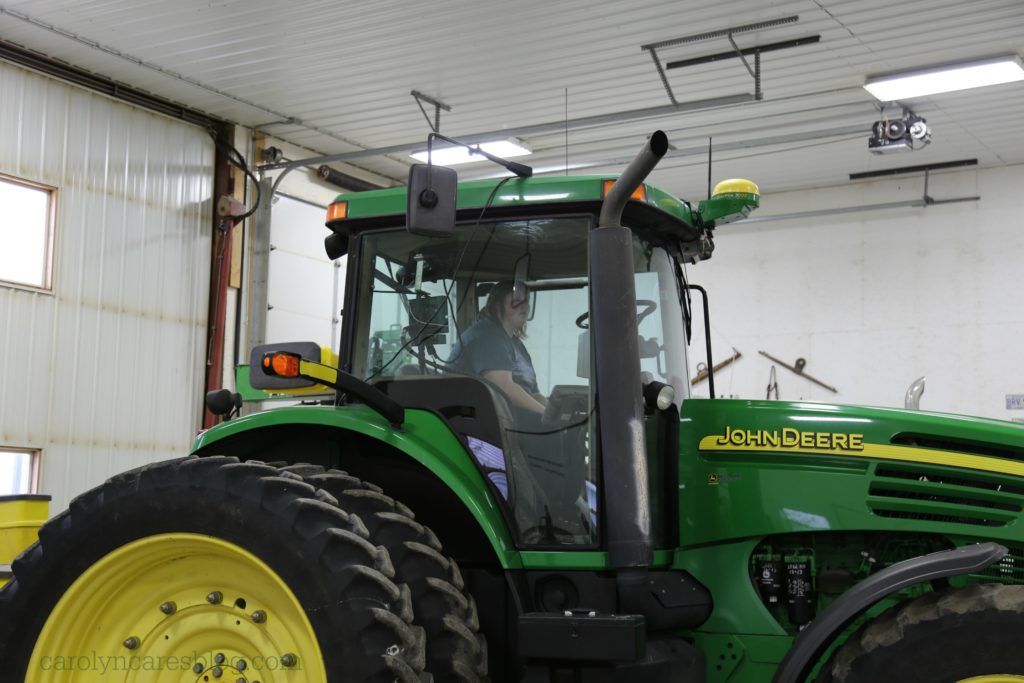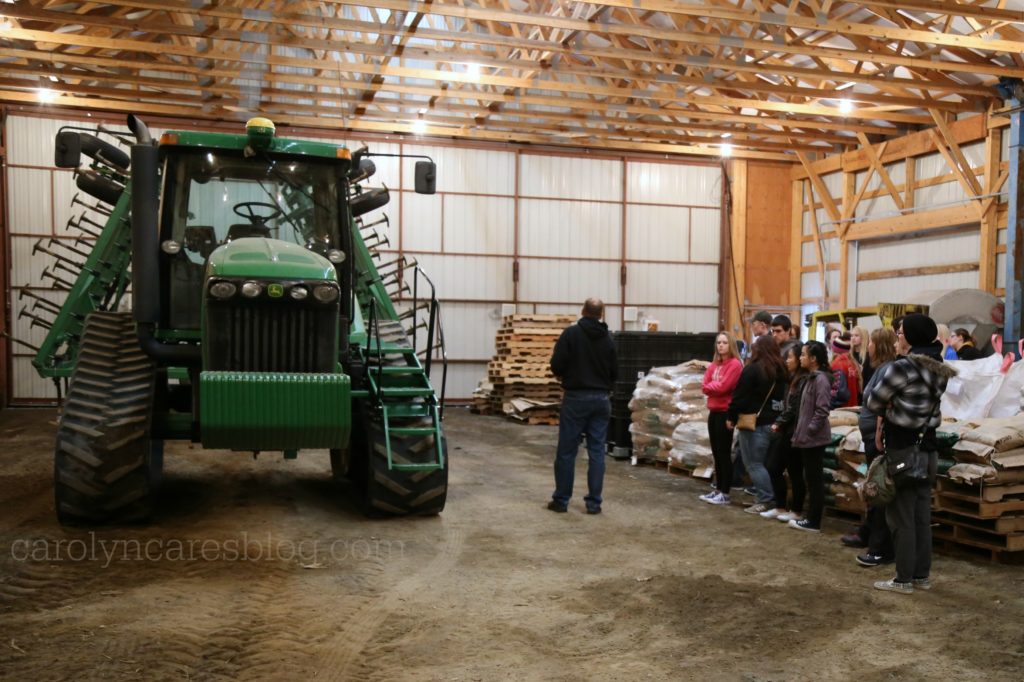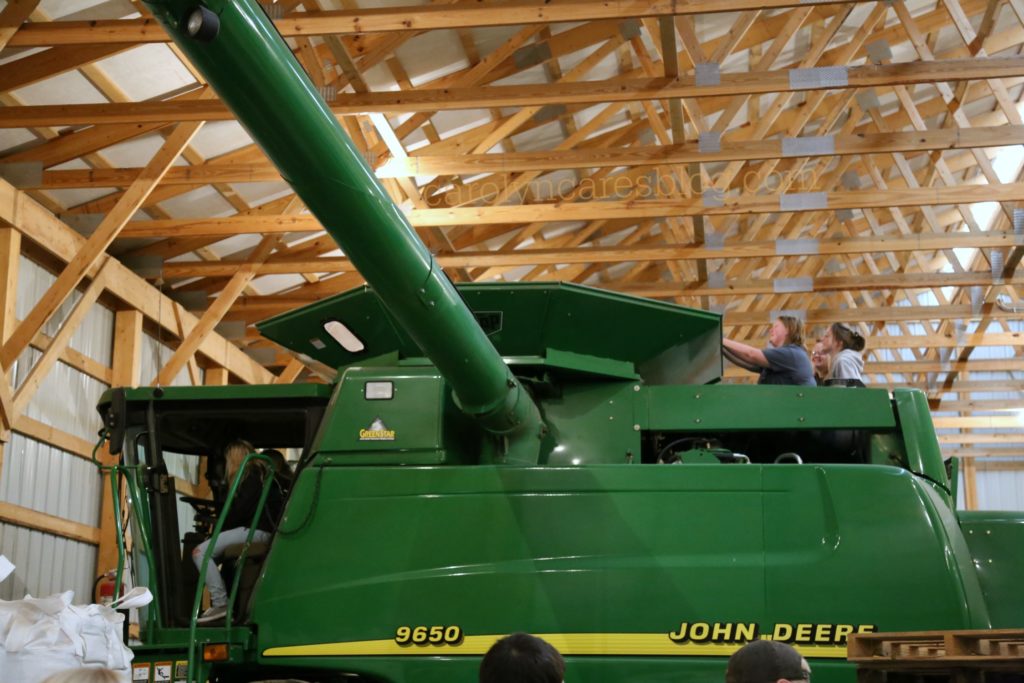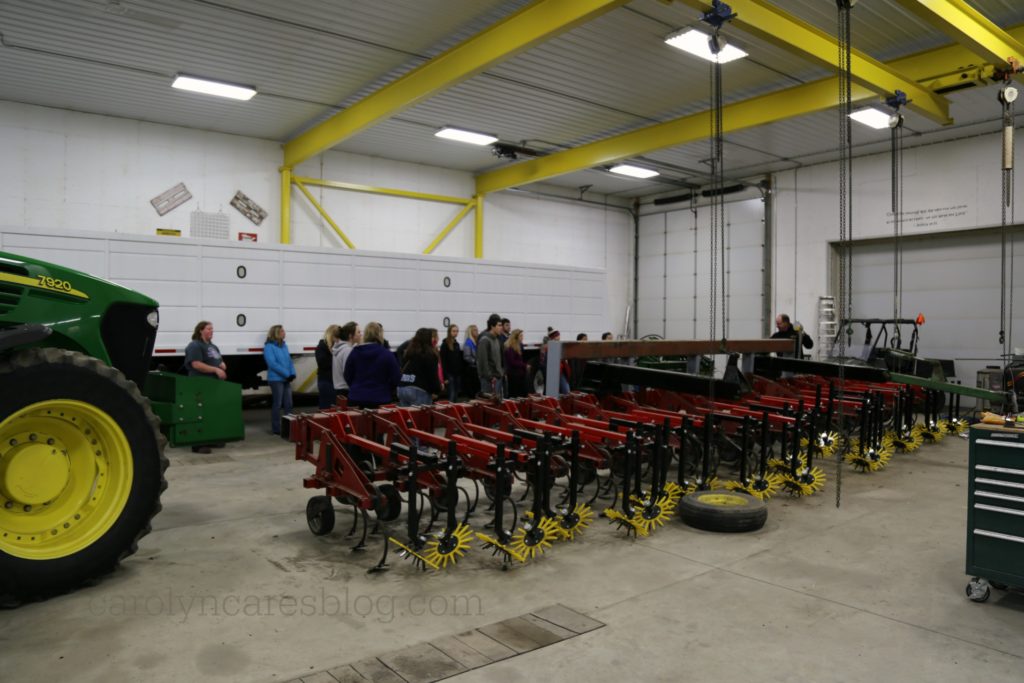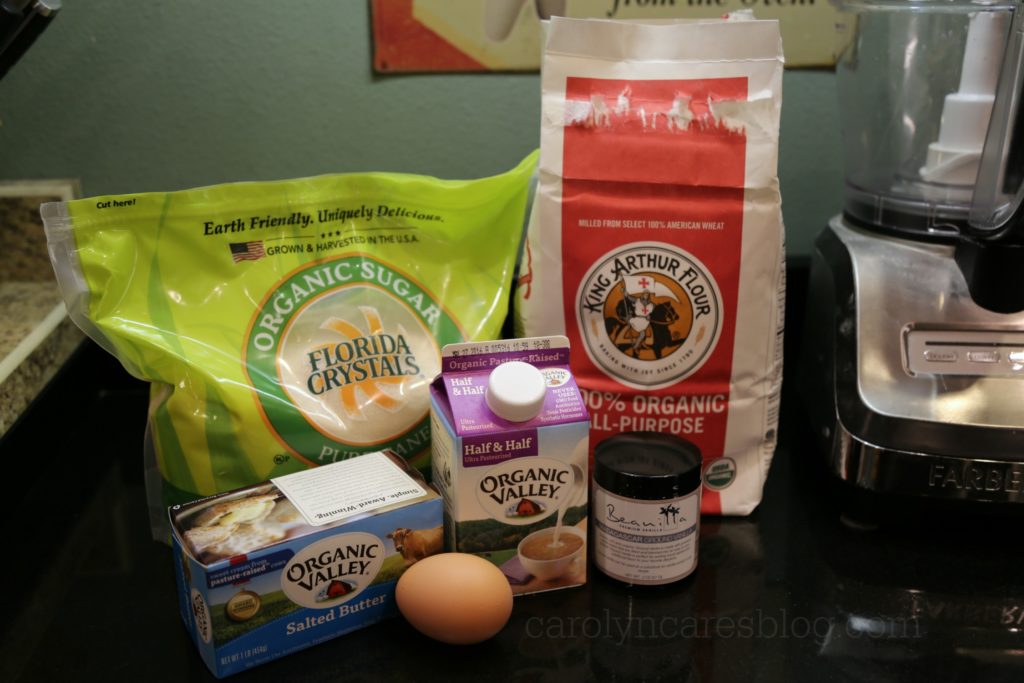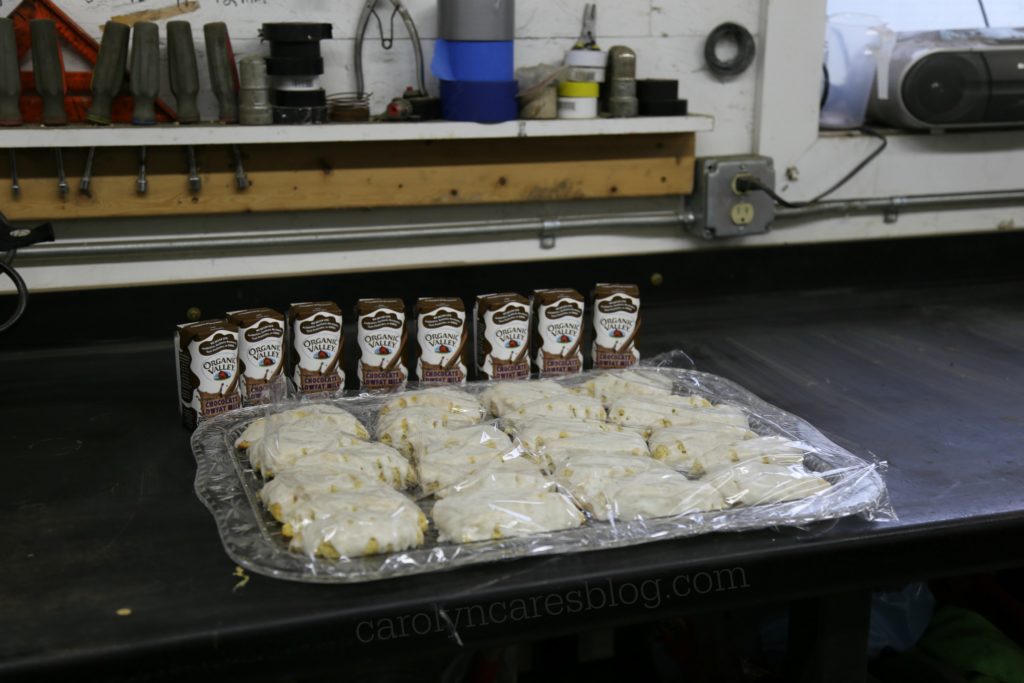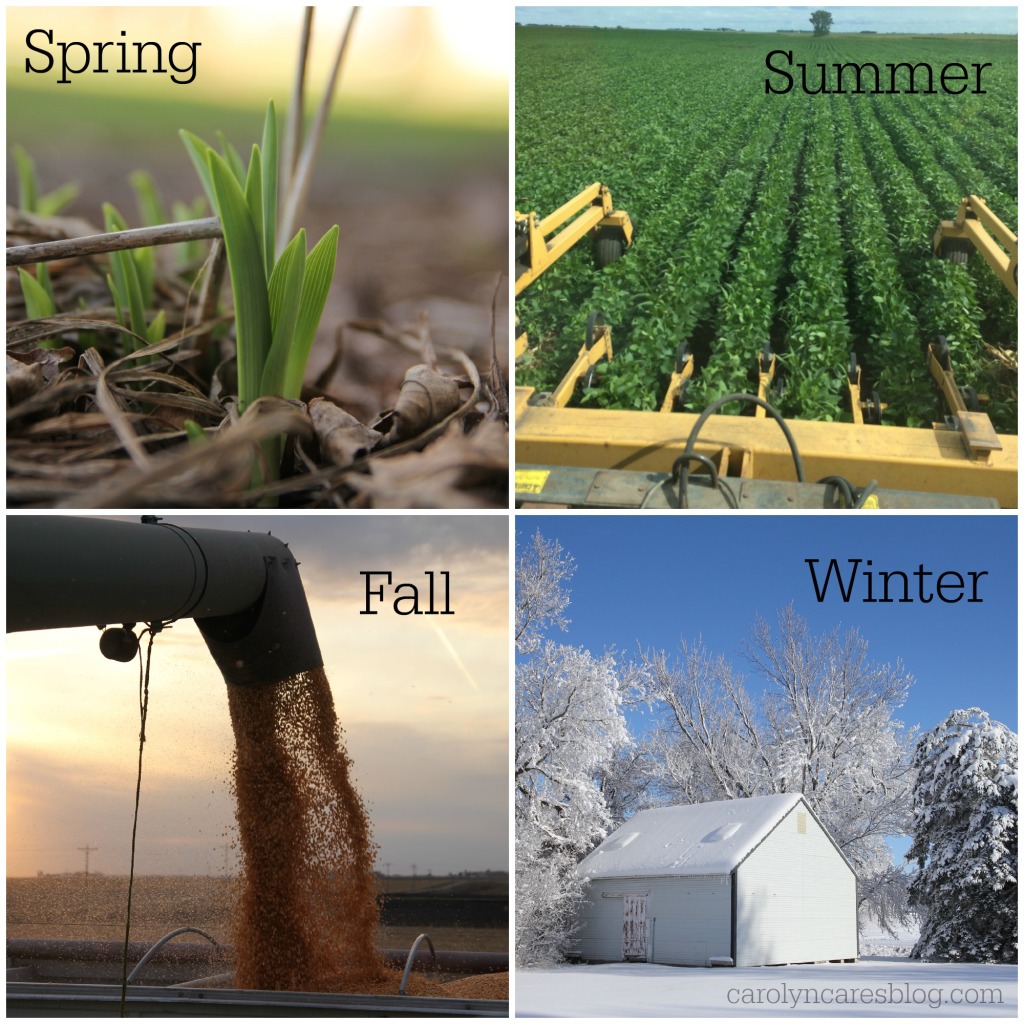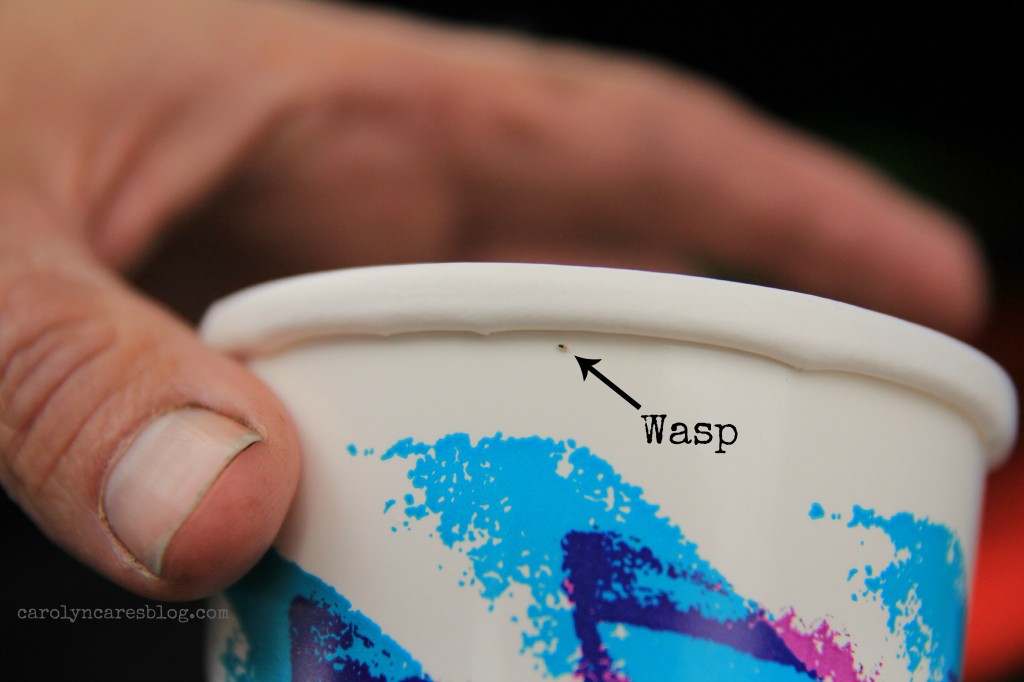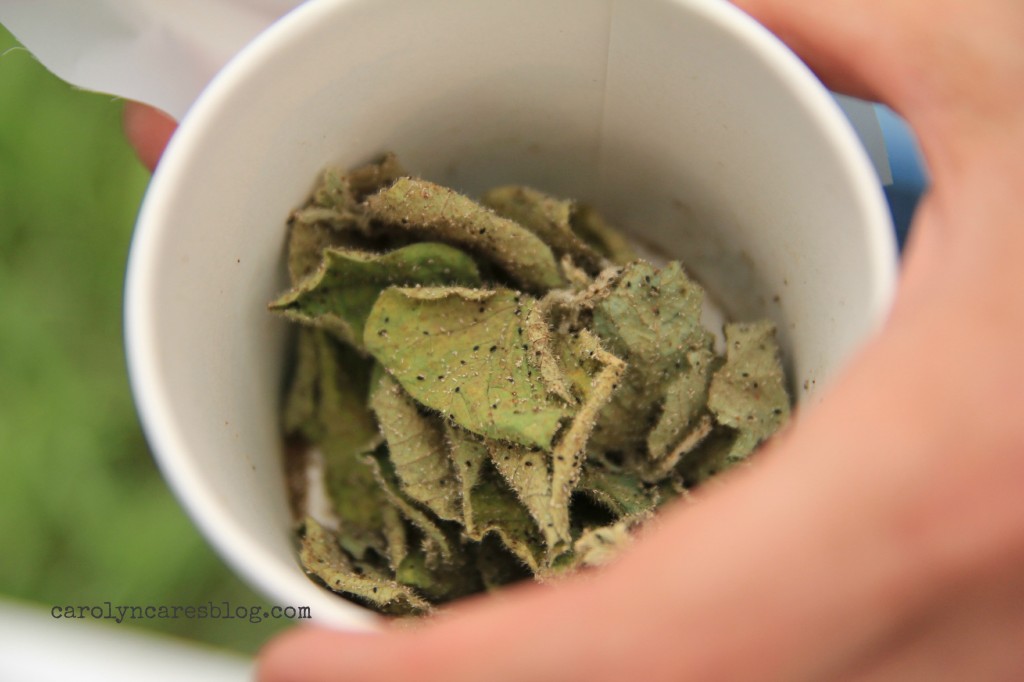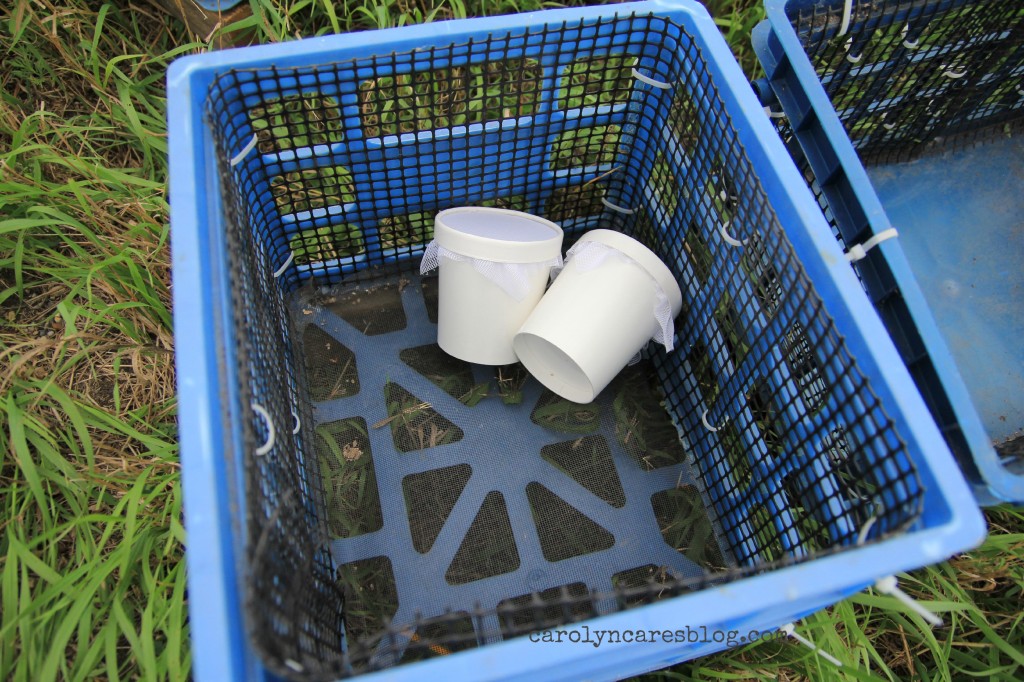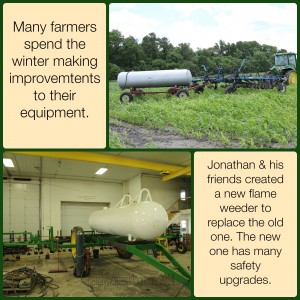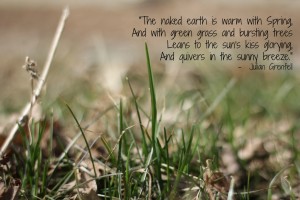Last November, thanks to the Minnesota Farm Bureau’s Speak for Yourself program, I had the opportunity to share my farm story with the Farm to Fork class at Tracy High School. At the conclusion of my presentation, I invited the class to come visit our farm, since we are less than 30 miles from their school. On April 27th, they took us up on the offer.
The day dawned cold and windy with 100% chance of rain. We had tractors and machinery parked in the shop and the machine shed so we wouldn’t have to stand outside. I was very thankful that Jonathan and Adam took the time to clean the shop so we could meet in there…and they even turned the in-floor heat on again. In April in Minnesota, it’s not unusual to go from heat to air conditioning to heat in the span of a week.
We started out in the shop where we had our planter tractor parked with the corn and soybean planter attached. We talked about how the planter works, and how we use GPS technology to plant in a straight line, and how we can adjust the depth the seeds are planted according to the recommendations for that seed. Many of the students have helped plant gardens, so they understand the importance of planting the seeds at a proper depth. We also talked about how we use computers to plant just the right number of seeds in an acre, and how we can adjust that depending on soil types. The three monitors we have in our planter tractor were running so the kids could see what kind of information we use when we’re planting. They were able to climb up into the tractor if they wanted.
While in the shop, we also talked about the records we keep and the process we go through to become a certified organic farm. We had our Organic Systems Plan, Clean Truck Affidavits, and Yield Maps & Soil Tests books that they could page through.
Next we walked over to the machine shed. Fortunately, it wasn’t raining yet. The machine shed was chilly, but at least we were out of the wind! Jonathan talked about the field cultivator and the tractor that pulls it, and how we can change the tracks on that tractor to narrow ones that will fit in between our 22 inch rows if we need to. The kids were standing around the pallets of seed that were waiting to be delivered to our seed customers, but they didn’t seem to mind.
The rotary hoe is parked to the left of the tractor in the photo, so we walked over and talked about why and how we use it. Then we turned and talked about the combine. It was a good time to talk about farm safety as well. The kids could see the size of the machine up close, and realize that this isn’t really meant to be on the road. I hope the message of giving the combine room in the back, and only passing when it is safe to pass is a message that sticks! The kids had the chance to climb up into the combine cab and up on the back to see what it looks like. I think they liked this part!
We viewed the flame weeder from the door of the machine shed, since it was starting to rain at this point. Back in the shop, we gathered around our newest project, a cultivator. This cultivator has a camera that “sees” the crop and adjusts the cultivator’s position accordingly. I’ll explain that a bit more in another post.
The kids were able to put their hands in a bucket of wheat seed, and we talked about how the seed we plant becomes the food they eat. Sometimes King Arthur Flour buys our wheat through one of our grain buyers. We also have sold corn and soybeans to dairy and poultry farms to supply feed for their animals. To help connect the farm to fork concept, I baked some of my favorite scones for our guests using ingredients that could affect our farm when they are purchased by consumers. The King Arthur Flour, and Organic Valley dairy products are two of our potential markets. The organic sugar and egg may not directly affect us, but show that those choices are available to consumers in southwest Minnesota. The ground vanilla beans are there because I love using ground vanilla beans in my baking, even though it is considered a premium ingredient.
The students asked some great questions, and know they have someone they can ask when something comes up that they want to understand a bit more. One of the reasons why I love to share my farm story with groups, and why I love hosting groups on our farm is that connection I now have with all those I visited with.
It is important to Jonathan and I that we show consumers the impact that farmers and agriculture have on them. We talked about how Jonathan and I are giving consumers a choice by farming organically, and that we don’t mind what their families choose, since agriculture is filled with farmers and farm families like ours. No matter what they purchase in the grocery store, it started on a farm.
To me, there is no better way to cap off a morning on the farm than by eating a vanilla bean scone with a carton of Organic Valley Chocolate Milk served from the workbench. Thanks to the students for being awesome, and thank you to Mrs Campbell and Ms Noll for making both visits possible!
Some might think it is scary to host a Farm to Fork or Family and Consumer Sciences class at their farm. It doesn’t have to be fancy, you don’t have to be an expert on everything. Most of the kids just want the chance to meet a farmer and get a little hands on feel for what it takes for the food they eat to get to their table. If you are interested in hosting classes, contact your Farm Bureau and see if they have programs that will help you connect with teachers.
A huge shout out to my friend, Emily Zweber of Zweber Farms for supplying the chocolate milk…and to Jonathan for cleaning up the shop, getting equipment parked inside, and talking about farming to the Farm to Fork class…and to our hired dude, Adam, for cleaning the shop with Jonathan, and picking up after us and turning off equipment and turning out lights when we were done.
